#germany 2007 sunday
Video
undefined
tumblr
lewis hamilton, p9, speaks after the race, nürburgring, germany - july 22, 2007
#lewis hamilton#f1#formula 1#european gp 2007#flashback fic ref#flashback fic ref 2007#germany#germany 2007#germany 2007 sunday#european#european 2007#european 2007 sunday
4 notes
·
View notes
Text

bmw sauber reserver driver sebastian vettel in the paddock on race day, spain - may 13, 2007
📷 crash media group / imago
#sebastian vettel#f1#formula 1#spanish gp 2007#flashback fic ref#flashback fic ref 2007#spain#spain 2007#spain 2007 sunday#not a race#2007 not a race#between italy and germany 2007#(note to self: refers to formula renault 3.5 season)
14 notes
·
View notes
Text
Every European kid asking why it's called “Palms Sunday” If we bless everything except real palms:
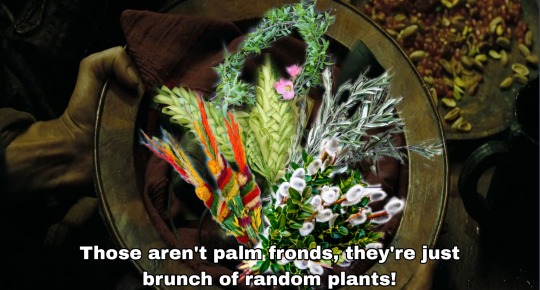
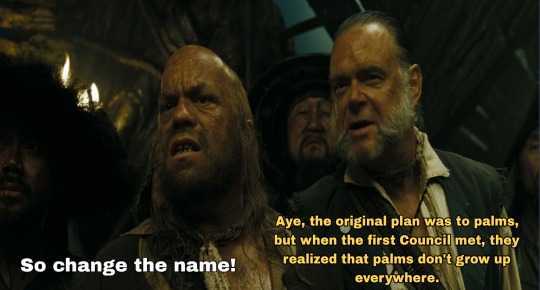
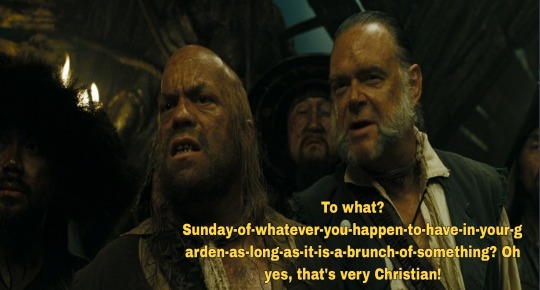
Palm Sunday is a Christian holiday. As you might have guessed from the name, it’s on a Sunday — always the Sunday before Easter. That’s because it’s meant to commemorate Jesus’ arrival in Jerusalem, a week before Easter Sunday.
However, plams doesn't grow up everywhere, so each Christian country adopted their own version.
In the memes I summarize some of the European traditions I know:
North Italy, Slovenia and Croatia: small olive branches are blessed and distributed to the faithfuls at Churches. In Slovenia there are also “butarica”, that is traditionally a bundle of greenery, flowers or colored wood shavings. In Ljubljana, they are made of colored wood shavings, similar to the Polish tradion illustrated below
South Italy: interweaving palm leaves
Germany, Austria, Finland and Hungary: pussy willow or catkin branches
Bulgaria: Willow twigs, something weaved into crowns with other flowers
Poland: the faithful bring to churches their own “palms” generally made from willow branches decorated with evergreen plants colorful and vibrant crepe paper flowers and green bilberry or juniper bushes affixed to the top of dried flowers and colorful dyed grasses.
Source: Pirates of the Caribbean: At World's End, 2007, dir. by Gore Verbinski
#vavuskapakage#palm sunday#pirates of the caribbean#Pirates of the Caribbean: At World's End#Pirates of the Caribbean meme#european traditional#european traditions#European meme#poland#italian traditions#hungarian#hungary#german things#germany#Austrian#austria#bulgaria#slovenian#slovenia#Croatian#croatia#finland#finnish#finnish things#italian things#christian trauma
19 notes
·
View notes
Text


PORT-AU-PRINCE
This is a character inspired by Gede Nibo.
Description below cut:
RANTING ABOUT THE REAL-LIFE GEDE NIBO (GUEDE NIBO)

Andre Pierre featured Gede Nibo alongside Baron Samedi and Maman Brigitte in several paintings, such as “Les Trois Esprits du Cimetiere.”
Previously, I described Gede Nibo as (quote) “unapologetically queer”. Where did I get the audacity to make such a claim?
Well, there are a number of English language books and other sources that describe Gede Nibo himself as queer. As you may have gathered, I’m a big fan of Eziaku Atuama Nwokocha’s works, and have relied on her research. In Vodou en Vogue, Nwokocha describes him as an “effeminate dandy” who is “honored by queer people”. In Queering Black Atlantic Religions, Roberto Strongman also names Gede Nibo and Erzulie Freda as deities who "have strong associations with queer Vodou practitioners." Strongman’s statement is certainly true with respect to the Erzulies; the question is whether it is also true with respect to Gede Nibo.
Afraid of making the same mistake I did with Baron Samedi, I searched for a Haitian source, as there is a great amount of misinformation spread by English speaking, non-Haitians. Since the Haitian author Milo Marcelin also described Gede Nibo as queer, I stopped there and thought, “so Gede Nibo really is queer…!”
…But it seems I may have made the exact same mistake I did with Baron Samedi afterall.
OOPS!
As far as I can tell, the description of Gede Nibo as “queer” among English-speaking, non-Haitians originates in three major sources:
Gay, German author Hubert Fichte
Gay, American author Randy P. Conner
Haitian author Milo Marcelin
Hubert Fichte conducted his ethnographic work in Haiti during the 1970s. Apparently, Fichte heard Haitian farmers singing a song called “Masisi”, in which the lyrics went “Guede Nibo Masisi!”
He mentions the title of this song in Xango:
“Es gibt einen schwulen Totengott, Guede Nibo, und Anfang November singt das ganze Land, jeder haitianische Bauer die Hymnen auf die Schwulen - »Massissi« - und die ruralen Familienväter vollführen ambivalente Gesten vorne und hinten an ihrer Hose.”
Source: Fichte, Hubert, and Leonore Mau. 1984. Xango. Frankfurt: Fischer. p. 143 https://archive.org/details/xangodafroamerik0000fich/page/142/mode/2up?
An English translation is provided by Strongman:
“There is a gay god of death, Guédé Nibo, and in early November the whole country, every Haitian peasant, sings hymns to the gays— “masisi”—and rural family fathers perform ambivalent gestures at the front and back of their pants.”
Source: Strongman, Roberto. Queering Black Atlantic Religions: Transcorporeality in Candomblé (2019). p. 75
The lyrics of the song are described in Homosexualität und Literatur (Vol. 1):
“Als eine der wenigen Religionen verfuegt der Vaudou ueber eine homosexuelle Gottheit, den Totengott Guédé Nibo, und am Totensonntag singen die Vaudouglaeubigen in der Stadt und auf dem Land: Guédé Nibo Massissi, Guédé Nibo Massissi! – schwuler Guédé Nibo, schwuler Guédé Nibo!”
Source: Fichte, Hubert. Homosexualität und Literatur: Polemiken. Germany, S. Fischer, 1987. Vol. 1. p. 146
An English translation is provided in The Gay Critic:
“Voodoo is one of the few religions to espouse a homosexual divinity, the god of the dead Guédé Nibo, and on Dead Sunday the believers chant, throughout the city and in the countryside: Guédé Nibo Massissi! Guédé Nibo Massissi! – gay Guédé Nibo! gay Guédé Nibo!”
Source: Fichte, Hubert. 1996. The Gay Critic. Ann Arbor: University of Michigan Press. p. 118
Interestingly, Katherine Smith observed something similar in 2007, but the chant went “Gede Masisi!” not “Gede Nibo Masisi!”:
“Gede mounts individuals as well as small marauding bands of vagabon who may pound on tombs and yell obscenities at the dead. In 2007, one such group of young men dressed in drag, fellated bones, and danced flamboyantly as the crowed cheered “Gede Masisi!” (Gay Gede!).”
Source: Smith, Katherine. "Dialoging with the urban dead in Haiti." Southern Quarterly 47.4 (2010): p. 83
Hubert Fichte translated the word masisi as a schwul, meaning “gay”, but this is not accurate. Masisi is a slur that has been reclaimed by some within the Haitian LGBTQ community; really, la Communauté M / The M Community.
I have been using words that originate in the Western bourgeoisie, but these are not terms Haitians use to describe themselves - especially those oppressed by race and class. There are similarities between the word masisi and terms used in other non-Western cultures, such as hijra, bakla, okama, and fa'afafine.
As defined by Charlot Jeudy - the former president of KOURAJ who was killed in 2019:
“…the societal definition of masisi is ‘acting as the female partner in a homosexual relationship.’ You can have muscular, manly M persons, but for Haitians, they cannot be called masisi. The word masisi has always been an insult. It makes people uncomfortable for us to use it, but in Haitian Creole, there is no other way for me to describe what I am.”
Source: https://cornbreadandcremasse.wordpress.com/2013/06/16/the-m-community-lgbt-courage-in-haiti/
It’s from 2002, but the documentary Des hommes et dieux contains interviews of several self-identified masisi. Some who identify as masisi would probably identify as “gay” if they were born in America; others would probably identify as “trans” - either, as binary trans women, or nonbinary transfems. Either way, masisi is not synonymous with “gay” or “transfeminine”, and it is important to remember that it’s been used as hate speech.
Fichte was surely incorrect in using words like masisi, schwul, and gay to describe Gede Nibo. There is no doubt in his attraction to women. The question is whether he could be described as “bisexual”, miks, or if he is purely heterosexual - not queer in any respect.
Although he repeatedly describes Gede Nibo as “gay”, one of Fichte’s interviewees flatly denies this:
Ich frage:
—Ist Guédé Nibo Massissi? Schwul?
André antwortet:
—Das ist falsch. Die Götter, die aus zwei Teilen bestehen, sind keine starken Götter. Es sind gekaufte Götter. Man kauft die Götter, um Sachen zu machen, die nicht gut sind.
Source: Fichte, Hubert, and Leonore Mau. 1984. Xango. Frankfurt: Fischer. p. 182 https://archive.org/details/xangodafroamerik0000fich/page/182/mode/2up
Machine Translation:
I ask:
—Is Guédé Nibo masisi? Gay?
André answers:
—That is wrong. The gods that are made up of two parts are not strong gods. They are bought gods. People buy the gods to do things that are not good.
Because I do not speak German, I referred to Herbert Uerlings’ Poetiken der Interkulturalität for context:
Zu den gewichtigsten Ergebnissen seiner Feldforschung gehört, daß Guédé Nibo, einer der Totengötter, die alle traditionell mit Sexualität verbunden werden, ein Gott der Homo- und Bisexuellen ist. Sollte das zutreffen, so wäre es vermutlich eine neue ethnographische Erkenntnis über den Vaudou.47 Die weitergehende Frage an den Priester André, ob »Guédé Nibo Massissi« (X 182) sei, also schwul, wird verneint, aber auf eine Weise, bei der vor lauter offensichtlicher Abwehr Fichtes Vermutung praktisch bestätigt wird: »Das ist falsch. Die Götter, die aus zwei Teilen bestehen [bisexuell oder schwul sind — H.U.], sind keine starken Götter. Es sind gekaufte [schwache — H. U] Götter. Man kauft die Götter, um Sachen zu machen, die nicht gut sind« (X 182). Ein anderer, schwuler Priester dagegen sagt: »Es gibt Götter, die die Homosexuellen verachten, und andre, die sie lieben« (X 194).
Source: Uerlings, Herbert. Poetiken der Interkulturalität: Haiti bei Kleist, Seghers, Müller, Buch und Fichte. Vol. 92. Walter de Gruyter, 2013., p. 282
Machine Translation:
One of the most important findings of his field research is that Guédé Nibo, one of the gods of the dead, all of whom are traditionally associated with sexuality, is a god of homosexuals and bisexuals. If this is true, it would probably be a new ethnographic discovery about voodoo.47 The further question to the priest André as to whether "Guédé Nibo is Massissi" (X 182), i.e. gay, is answered in the negative, but in a way that practically confirms Fichte's assumption through sheer obvious defensiveness: "That is wrong. The gods who consist of two parts [bisexual or gay - H.U.] are not strong gods. They are bought [weak - H. U] gods. Gods are bought to do things that are not good" (X 182). Another, gay priest, on the other hand, says: "There are gods who despise homosexuals and others who love them" (X 194).
I do not know if Uerlings is correct in dismissing the interviewee as “defensive”, but I am grateful for his clarification of the phrase “aus zwei Teilen bestehen”.
Notably, the footnote on the same page states:
47 Ich habe in der Literatur keinen Beleg dafür gefunden. Allerdings notiert Deren zu Guédé: »Er vertauscht die Geschlechter und zieht Frauen Männerkleider und Männern Frauenkleider an« (Der Tanz des Himmels mit der Erde, 1992, S. 128f.), und vermerkt in einer Fußnote: »Es wird zwar selten eindeutig ausgesprochen, aber häufig finden sich Hinweise darauf. daß es sich bei Guedé [sic!] um eine hermaphroditische Gottheit handelt, genau wie Legba« (a.a.O.).
Source: Uerlings, Herbert. Poetiken der Interkulturalität: Haiti bei Kleist, Seghers, Müller, Buch und Fichte. Vol. 92. Walter de Gruyter, 2013., p. 282
Machine Translation:
47 I have found no evidence of this in the literature. However, Deren notes about Guédé: »He swaps the sexes and dresses women in men's clothes and men in women's clothes« (The Dance of Heaven and Earth, 1992, p. 128f.), and notes in a footnote: »Although it is rarely stated clearly, there are frequent indications that Guedé [sic!] is a hermaphroditic deity, just like Legba« (loc. cit.).
It is possible that the German Fichte was mistaken in describing Gede Nibo as queer, and that he mistook his lasciviousness for queer sexuality.
Notably, the Haitian author Milo Marcelin described Gede Nibo as queer in Mythologie Vodou (vol. 2): “Guédé Nibo, mystère mâle et femelle (hermaphrodite), est le protecteur des vivants et des morts.” Similar to the song “Masisi”, Marcelin describes another song that suggests Gede Nibo is himself queer. Naturally the song is sexually explicit, but you can find it in the source provided below, with one of the lyrics being “...Regarde la démarche de Guédé!”.
Source: Marcelin, Milo. Mythologie Vodou: Rite Arada. 2 vols. Port-au-Prince: Les Editions Haitiennes, 1950. Vol. 2, p. 181 & p. 187 https://www.google.com/books/edition/Mythologie_vodou_rite_arada/cjvXAAAAMAAJ?hl=en&gbpv=1&bsq=%22Regarde+la+d%C3%A9marche+de+Gu%C3%A9d%C3%A9%22
An English translation of this song can be found in: Conner, Randy P. Lundschien, and David Sparks. Queering Creole spiritual traditions: Lesbian, gay, bisexual, and transgender participation in African-inspired traditions in the Americas. Routledge, 2014, p. 63 https://books.google.com/books?id=5SINiF0fkqwC&pg=PA63&lpg=PA63
A large section of Conner’s Queering Creole Spiritual Traditions describes “homoerotic, pansexual, and transgender aspects” of Gede Nibo. (p. 94). However, one interviewee denies an association between Gede Nibo and queer sexuality - that being, the Caucasian Houngan Mark Alexander "Aboudja" Moellendorf (p. 64)
Source: Conner, Randy P. Lundschien, and David Sparks. Queering Creole spiritual traditions: Lesbian, gay, bisexual, and transgender participation in African-inspired traditions in the Americas. Routledge, 2014
Outside of the sources mentioned above, I have found little evidence that Gede Nibo is himself queer. Rather than Gede Nibo, I’ve found more evidence that the Erzulies are important to members of the aforementioned Haitian “M Community” (see bottom of this post). I have also seen claims that Gede Nibo sometimes cross dresses, but I’ve yet to find a reliable source for this. There are artistic renditions of him proudly displaying his sexuality, but I have yet to see any that show him in women’s clothing, or displaying queer sexuality.
It is possible that the authors listed above are correct in their assessment (except for Fichte, who was definitely wrong). However, there’s a lot of misinformation spread about the lwa outside of Haiti and New Orleans, which arises from foreigners misunderstanding the culture and traditions of Vodou. Since I have already made mistakes with Baron Samedi and Maman Brigitte, I could be wrong about Gede Nibo too. If this is the case, I apologize for spreading misinformation about him being queer.
It is also possible that the above was true at some point in the past, but not in the present. Afterall, Fichte and Marcelin wrote during the mid 20th century, and traditions evolve over time.
…Well, might as well start ranting about my Deviantart OC!
RANTING ABOUT MY DEVIANTART OC
This character’s name is “Port-au-Prince” - named after the capital of Haiti.
Unlike the real-life Gede Nibo, “Port-au-Prince” is just gay, and a drag queen. His personality and interests are similar to Angel Dust, where he is openly gay and flamboyant in his mannerisms. As it is a slur, I have been avoiding the word masisi, but it is likely he would identify as part of the “M community”. Where Alastor is (presumably) the son and/or grandson of New Orleans Voodoo Queen(s), “Port-au-Prince” is a houngan - an extremely powerful one at that. His appearance and personality were inspired by the individuals featured in the documentaries Des hommes et dieux and Paris is Burning.
I made this decision for these reasons:
To integrate him into the pre-existing world of Hazbin Hotel, as a counterpart Angel Dust
To represent the Haitian “M community”, who experience intense prejudice and violence, but find sanctuary in Vodou
To differentiate him from the real-life Gede Nibo
As a tribute to the association between the Gede and gender/sexual queerness
Here’s a list of sources to back this third point:
Nwokocha, Eziaku Atuama. Vodou en vogue: fashioning Black divinities in Haiti and the United States. UNC Press Books, 2023.
Conner, Randy P. Lundschien, and David Sparks. Queering Creole spiritual traditions: Lesbian, gay, bisexual, and transgender participation in African-inspired traditions in the Americas. Routledge, 2014
McAlister, Elizabeth A. "Love, sex, and gender embodied: The spirits of Haitian Vodou." Love, sex and gender in the world religions (2000): 129-146. https://africultures.com/love-sex-and-gender-embodied-the-spirits-of-haitian-vodou-5719
Smith, Katherine. "Dialoging with the urban dead in Haiti." Southern Quarterly 47.4 (2010): p. 83
Hence, the decision to make “Port-au-Prince” a queer drag queen.
As a counterpart to Angel Dust, he has a dual gangster-ballroom/voguing theme to him, where he runs his own ballroom house. Although his roots are from Haiti, I think it would be interesting if he was part of the diaspora, where spent much of his human life in New York. This too helps integrate him into the pre-established world, where many characters are former humans who lived during different time periods of American history. It also establishes another parallel between him and Angel Dust, who is also from New York. I was picturing his house as being a mix of Black transfems (more broadly, feminine of center AMABs) and Black transmascs (more broadly, masculine of center AFABs), who are all former humans. They also double as a battle force that could be recruited in a similar manner to the Cannibals in Cannibal Town, where they have strong healing and fighting abilities.
Port-au-Prince’s drag queen persona is inspired by Aaliyah as Queen of the Damned. In addition to Angel Dust, it would also be possible to establish a connection between him and Sally Mae, if she has any interest in drag. He is the adoptive son of the “Baron of the Dead” and “Gran Maman”, my other DeviantArt OCs who I drew here: https://www.deviantart.com/thegirlwhodidntsmile/art/Lavi-and-Lanmo-1073560801
This was inspired by the description provided by Roberto Strongman, where he writes:
“In Vodou lore, Gédé Nibo is a young man who was killed violently. Therefore, he has a particular association with those who die young. Once in the spirit realm, Bawon Samedi and Gran Brigit adopt him. In demeanor he is comical, lascivious, witty, and effeminate. In appearance, he is a dandy.”
Source: Strongman, Roberto. Queering Black Atlantic Religions: Transcorporeality in Candomblé (2019). p. 74
It would be imperative to run a concept like this by an expert on Haitian Vodou, to determine whether his portrayal is respectful or not. If it’s inoffensive, I think it would be cool if the three characters inspired by “Les Trois Esprits du Cimetiere” formed a “sexually complete” trinity: one male, one female, and one androgynous. But this may be problematic, as it could mislead audiences into thinking the real-life Gede Nibo is gay. Another approach would be to remove his drag queen persona, and make him a straight guy who has gay friends. Instead of Gede Nibo, the Erzulies could serve as inspiration for a character that embodies LGBTQ acceptance in Vodou.
RANTING ABOUT THE ERZULIES (EZILI DANTOR AND EZILI FREDA)
The Erzulies are important to the Haitian M Community - especially when accounting for race and class. Intense homophobia persists among the oppressed - who are denied access to higher education, and often understand sexuality/gender through religion. Those despised as masisi and madivin are tolerated in Vodou, where many houngans are themselves part of the M Community.
There is a fascinating documentary called Des hommes et dieux, which examines this very community. Several interviewees assert that Ezili Dantor has the power to make a person - male or female* - homosexual. It is for this reason that interviewees insist they were “born this way”, and that their parents - who might have otherwise rejected them - accept them as they are. I was particularly moved by statements from the interviewee Blondine, where the English captions read: “[My father] realized it came from voodoo. So he had to accept me. I’m like this because of the spirits that he’s serving. The loas decided I would be a girl. I was born this way.”
Granted, one interviewee (the houngan named Fritzner who self identifies as masisi) rejects this belief, considering it blasphemous. Either way, it is unanimous that the Erzulies protect the M community. Those hated as masisi are loved by the lwa, become their houngans, and are called les enfants d’Erzulie - “Ezili’s children”.
*I specify the category of sex, as the invisibility of “female masculinity” (including, masculine female homosexuality and the transmasculine spectrum) rears its ugly head. The “M Community” has language for transfems and feminine gay men; there are no equivalent terms for transmascs and masculine of center lesbians. As such, I have struggled to find information/research about the inverse phenomenon of “inverted” or “radically masculine” identifying members of “the feminine sex”; certainly not within the Black proletariat. Haiti is by no means unique in this regard. This disparity is found in many cultures all over the world - especially among the oppressed classes.
In any case, Erzulies are not just important to those of “the masculine sex”, but those of “the feminine sex” as well. Eziaku Nwokocha documents her personal experience as a Black queer femme with Ezili Dantor in The ‘Queerness’ of Ceremony. Zora Neale Hurston also briefly mentioned the importance of Ezili Freda to women who “tend toward the hermaphrodite” (i.e., with queer tendencies) in Tell My Horse. Unfortunately, I have struggled to find information about the Haitian equivalent of studs, aggressives, trans men, etc… due to the aforementioned issue of invisibility. Notably, none of the women at the temple Nwokocha visited were masculine-presenting, except for one visitor who dressed in red to honor the masculine lwa Ogou.
Previously I had been under the impression that Erzulie Dantor was associated with lesbians while Erzulie Freda was associated with the transfeminine spectrum. Just, a completely false dichotomy! WOW is there a lot of misinformation spread about Vodou! The Erzulies are associated with the transfeminine spectrum, as they protect femininity in all its manifestations. In addition to Black lesbians/bisexual/queer women, Erzulie Dantor is important to Black transfems, as she is depicted as a dark-skinned Black woman. That’s why people in the Haitian M Community love her, as a goddess of love, luck, and protection. For these reasons, I think it would be really cool to try to work Erzulie-inspired character(s) into this fictional world; granted, it presents more of a challenge to fit them into this setting, since they are not spirits of the dead. The easiest way to do so would be to have one of the Erzulies replace Mother Mary, if Mother Mary does not exist in the fictional mythology of Hazbin Hotel.
If you want to learn more about this, I highly recommend watching Anne Lescot & Laurence Magloire's documentary Of Men and Gods / Des hommes et dieux (2002). It’s available on Kanopy for free, and for rent Vimeo. Additionally, Eziaku Nwokocha, Roberto Strongman, and Omise'eke Natasha Tinsley have written several books and papers on this topic. Here are a few sources that can be accessed online:
Tinsley, Omise’eke Natasha. “Songs for Ezili: Vodou Epistemologies of (Trans) Gender.” Feminist Studies, vol. 37, no. 2, 2011, pp. 417–36. JSTOR, http://www.jstor.org/stable/23069911. Accessed 4 Aug. 2024.
Strongman, Roberto. "Cross-Gender Identifications in Vodou." In Defying Binarism: Gender Dynamics in Caribbean Literature and Culture. Virginia University Press. Ed. Maria Cristina Fumagalli. https://www.blackstudies.ucsb.edu/sites/secure.lsit.ucsb.edu.blks.d7/files/sitefiles/people/strongman/NewCrossGenderIdentificationsVodou.pdf
Nwokocha, Eziaku. “The ‘Queerness’ of Ceremony: Possession and Sacred Space in Haitian Religion.” Journal of Haitian Studies, vol. 25, no. 2, 2019, pp. 71–90. JSTOR, https://www.jstor.org/stable/26926664. Accessed 6 Aug. 2024. https://eziakunwokocha.com/wp-content/uploads/2022/11/The-Queerness-of-Ceremony.pdf
SIDE NOTE:
Rereading this, I fear I may come across as judgemental of writers like Fichte and Conner. That is not my intent! I do not think it is fair to judge these authors harshly. It is easy to take the internet for granted. I think these authors did the best they could with the technology that was available to them, but mistakes could have still been made. The fault does not lie on them, but myself for having been careless in my research.
#i actually tried to fit this character into the art style of the show... it's just a rough concept sketch but you get the idea#hazbin hotel oc#port au prince (hazbin hotel)#I wrote this sort of as a follow up to an earlier post where I didn’t have time to research LGBT rights in Haiti#the oppression and hatred of the M community is as intense as I thought it was. but it is remarkable how Vodou offers a space of tolerance#also for some reason I forgot to control for class and compared the bourgeoisie of Haiti against the underclasses of my#that was fucking stupid of me! why did I do that???
5 notes
·
View notes
Text
by Robert Spencer
The New York Times wants you to weep for the people of Gaza, and for what Hamas’ massacre of 1,200 Israelis on Oct. 7, which Gazans cheered in large numbers, has brought upon them. In service of that goal, on Christmas Eve the Paper of Record ran a weepy piece by a prominent Gazan, someone who has witnessed the Israeli incursion firsthand. Did the Times give this plumb editorial space to a “moderate” Gazan, a known foe of the Hamas regime, one of those “innocent Palestinians” who have nothing, nothing whatsoever, to do with Hamas? Uh, not quite.
“I Am Gaza City’s Mayor. Our Lives and Culture Are in Rubble,” was written by Yahya R. Sarraj and published in the Times on Sunday. The Times identifies the author in terms that make him sound like an airy, inoffensive intellectual: “Dr. Sarraj is the mayor of Gaza City and a former rector of the University College of Applied Sciences there. He wrote from Gaza City.”
Yahya R. Sarraj, you see, is no terrorist, he’s a mild-mannered professor. But what the Times doesn’t bother to remind its hapless readers about is the fact that Hamas controls Gaza, and no one can hold the position of being mayor of the largest city in the Gaza Strip without being either an active Hamas member or entirely sympathetic with the terror group’s outlook and goals. Sarraj even alludes to this matter-of-factly in his piece, writing: “One of my major goals after the Hamas administration appointed me mayor in 2019 was to improve the city’s seafront and foster the opening of small businesses along it to create jobs.”
Sarraj spends the bulk of his article doing his best to move the reader to rage against Israel. “As a teenager in the 1980s,” he says, “I watched the construction of the intricately designed Rashad al-Shawa Cultural Center in Gaza City, named after one of Gaza’s greatest public figures, and its theater, grand hall, public library, printing press and cultural salon.”
This place was so impressive that Sarraj says even Bill Clinton visited it while he was president; it was, in fact, “the gem of Gaza City,” and it meant a great deal to Sarraj personally: “Watching it being built inspired me to become an engineer, which led to a career as a professor and, in the footsteps of al-Shawa, as mayor of Gaza City. Now that gem is rubble. It was destroyed by Israeli bombardment.”
Sarraj claims that “Israel, which began its blockade of Gaza more than 16 years ago and has maintained what the United Nations and human rights groups call an ongoing occupation for far longer, is destroying life here.” Destroying life! Sixteen years ago, in 2007, the population of Gaza was 1,416,543, up from 1,022,207 in 1997. In 2023, it’s 2.2 million, 64% higher than it was in 2007. If the Israelis are “destroying life” in Gaza and even committing a genocide, as many have charged, they’re doing a remarkably ineffective job of it.
Sarraj laments: “Why can’t Palestinians be treated equally, like Israelis and all other peoples in the world? Why can’t we live in peace and have open borders and free trade?” He doesn’t offer any answers, so I will, as the answer is not elusive at all: if Palestinians would stop trying to murder Israeli civilians and destroy the state of Israel altogether, they could have all of that and more.
Why is the New York Times publishing Hamas propaganda? Because doing so is consistent with its longstanding editorial policies. Ninety years ago, on July 9, 1933, just over five months after Adolf Hitler became chancellor of Germany and years after his virulent anti-Semitism and propensity for violence had become internationally known, the Times published a fawning puff piece on the Führer.
Pulitzer Prize-winning “journalist” Anne O’Hare McCormick traveled to Berlin to interview the new chancellor, and in his presence, she was starstruck: “At first sight,” McCormick gushed, “the dictator of Germany seems a rather shy and simple man, younger than one expects, more robust, taller. His sun-browned face is full and is the mobile face of an orator.” McCormick seemed to have a crush on the future butcher of Europe: “His eyes are almost the color the blue larkspur in a vase behind him, curiously childlike and candid. He appears untired and unworried. His voice is as quiet as his black tie and his double-breasted black suit.”
Hitler, McCormick signaled to her readers, was reasonable and genuine: “He begins to speak slowly and solemnly but when he smiles — and he smiled frequently in the course of the interview — and especially when he loses himself and forgets his listener in a flood of speech, it is easy to see how he sways multitudes. Then he talks like a man possessed, indubitably sincere.” What’s more, “Herr Hitler has the sensitive hand of the artist.”
In the 29th paragraph of a 41-paragraph article, McCormick says that she asked him: “How about the Jews? At this stage how do you measure the gains and losses of your anti-Semetic [sic] policies?” Hitler answered, she said, with “extraordinary fluency,” and she records his answer – a tissue of victim-blaming and excuse-making – at considerable length. Later, she says, “Herr Hitler’s tension relaxed. He smiled his disarming smile.”
Little did Anne O’Hare McCormick realize, as Hitler’s blue larkspur eyes twinkled in her direction and his disarming smile made her heart flutter, that all these years later, the New York Times would not only be publishing puff pieces about authoritarian thugs, but giving them space to propagandize to their heart’s content.
#yahya r sarraj#adolph hitler#new york times#anne o'hare mccormick#gaza city#mayor of gaza city#hamas#gaza#media bias
15 notes
·
View notes
Text
WARSAW, Poland (AP) — Three opposition parties that vowed to restore democratic standards in Poland together won over 54% of the votes in the nation’s weekend parliamentary election, putting them in a position to take power, according to a complete ballot count reported Tuesday.
The conservative Law and Justice party, which has governed the country for eight turbulent years, won slightly over 35% of the votes, making it the single party with the most votes. But the party and its leader Jarosław Kaczyński lost their majority in parliament and appeared to have no way to hold onto power.
The official ballot announced by the National Electoral Commission aligns closely with an exit poll released after voting ended Sunday.
Turnout was nearly 75%, a record that surpassed even the 63% turnout of 1989, a vote that triggered the collapse of the oppressive Soviet-backed communist system.
Law and Justice had been moving the country down an illiberal path, taking control of courts in a manner that violated the country’s constitution. The party politicized state institutions, including taxpayer-funded public media which it used as a crude propaganda tool to praise itself and vilify opponents.
The result was a huge victory for Donald Tusk, the head of the largest opposition group, Civic Coalition. He appeared likely to return to his past role as Polish prime minister, a job he held from 2007-14. He also served as the European Council president, a top job in the EU, from 2014-19.
Tusk’s success is all the more remarkable given that state media went into overdrive to portray him as a stooge of Germany and Russia. That portrayal, which appeared baseless, also won him much sympathy.
Tusk himself won more than half a million votes running for a seat in parliament. His party said it was the best result in the history of parliamentary elections in Poland.
The result was a huge relief for Poles concerned about the country’s international isolation at a time of war across the border in Ukraine and the constant bickering with the European Union. Many feared it could cause the country’s eventual exit from the 27-member bloc.
The LGBTQ+ community also suffered a smear campaign in recent years, being portrayed as a threat to the nation by the conservative ruling party. Liberal critics were sometimes depicted as disloyal to the country. Over the years, massive protests led by women rocked the country as the party restricted the abortion law to prevent the termination of pregnancies with fetal abnormalities.
Young people and women were among those who voted in droves to get rid of the Law and Justice party, which won in 2015 vowing to fight corruption and help even out economic inequalities. While its social spending did help many Polish pensioners and families, solidifying a solid base of support, the party has increasingly faced allegations of corruption.
The National Electoral Commission said that Law and Justice won slightly over 35% of the votes, and the far-right Confederation party, a possible ally, about 7%.
Three opposition groups won a collective of 53.7%, enough for a comfortable majority of 248 seats in the 460-seat lower house of parliament, or Sejm; The Civic Coalition garnered 30.7% of the vote while the centrist Third Way got 14.4% and the New Left about 8.6%.
The three ran on separate tickets so they are not formally part of the same coalition, but all promised to cooperate to restore the rule of law.
Law and Justice will have 194 seats, far short of the majority it held for eight years.
Confederation increased its presence from 11 in the outgoing parliament to 18 seats in parliament. It had hoped for more after a brief summertime surge in the polls.
The opposition, which had a razor-thin majority in the outgoing Senate, has now obtained an overwhelming majority of 66 out of 100 seats in that upper chamber. The Senate is far less powerful than the Sejm, but still has some limited influence over the legislative process. Law and Justice will only have 34 seats.
In another sharp blow to Law and Justice, a referendum held alongside the vote failed to reach the 50% needed to be valid. Many voters boycotted it to protest loaded questions on migration and other fraught issues which appeared aimed mostly at mobilizing the ruling party’s supporters.
Although the voting is over, it might still take weeks for a new government to be in place.
President Andrzej Duda, an ally of Law and Justice, must call for the first session of the new parliament within 30 days of election day and appoint a prime minister to form a government.
In the meantime, the current government will remain in a caretaker role.
7 notes
·
View notes
Text
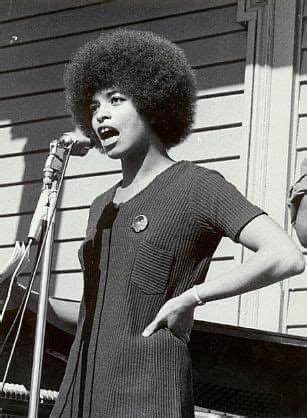



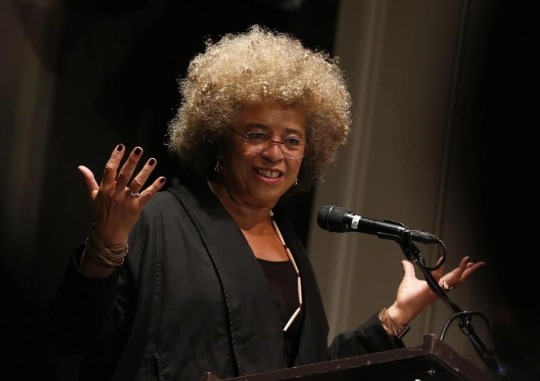
Angela Davis was born on January 26, 1944, in Birmingham, Alabama. Her family lived in the "Dynamite Hill" neighborhood, which was marked in the 1950s by the bombings of houses in an attempt to intimidate and drive out middle-class black people who had moved there. Davis occasionally spent time on her uncle's farm and with friends in New York City. Her siblings include two brothers, Ben and Reginald, and a sister, Fania. Ben played defensive back for the Cleveland Browns and Detroit Lions in the late 1960s and early 1970s. She was christened at her father's Episcopal church.
Davis attended Carrie A. Tuggle School, a segregated black elementary school, and later, Parker Annex, a middle-school branch of Parker High School in Birmingham. During this time, Davis's mother, Sallye Bell Davis, was a national officer and leading organizer of the Southern Negro Youth Congress, an organization influenced by the Communist Party aimed at building alliances among African Americans in the South. Davis grew up surrounded by communist organizers and thinkers, who significantly influenced her intellectual development. Among them was the Southern Negro Youth Congress official Louis E. Burnham, whose daughter Margaret Burnham was Davis's friend from childhood, as well as her co-counsel during Davis's 1971 trial for murder and kidnapping.
Davis was involved in her church youth group as a child, and attended Sunday school regularly. She attributes much of her political involvement to her involvement with the Girl Scouts of the United States of America. She also participated in the Girl Scouts 1959 national roundup in Colorado. As a Girl Scout, she marched and picketed to protest racial segregation in Birmingham.
By her junior year of high school, Davis had been accepted by an American Friends Service Committee (Quaker) program that placed black students from the South in integrated schools in the North. She chose Elisabeth Irwin High School in Greenwich Village. There she was recruited by a communist youth group, Advance.
Davis was awarded a scholarship to Brandeis University in Waltham, Massachusetts, where she was one of three black students in her class. She encountered the Frankfurt School philosopher Herbert Marcuse at a rally during the Cuban Missile Crisis and became his student. In a 2007 television interview, Davis said, "Herbert Marcuse taught me that it was possible to be an academic, an activist, a scholar, and a revolutionary." She worked part-time to earn enough money to travel to France and Switzerland and attended the eighth World Festival of Youth and Students in Helsinki. She returned home in 1963 to a Federal Bureau of Investigation interview about her attendance at the communist-sponsored festival.
During her second year at Brandeis, Davis decided to major in French and continued her intensive study of philosopher and writer Jean-Paul Sartre. She was accepted by the Hamilton College Junior Year in France Program. Classes were initially at Biarritz and later at the Sorbonne. In Paris, she and other students lived with a French family. She was in Biarritz when she learned of the 1963 Birmingham church bombing, committed by members of the Ku Klux Klan, in which four black girls were killed. She grieved deeply as she was personally acquainted with the victims.
While completing her degree in French, Davis realized that her primary area of interest was philosophy. She was particularly interested in Marcuse's ideas. On returning to Brandeis, she sat in on his course. She wrote in her autobiography that Marcuse was approachable and helpful. She began making plans to attend the University of Frankfurt for graduate work in philosophy. In 1965, she graduated magna cum laude, a member of Phi Beta Kappa.
In Germany, with a monthly stipend of $100, she lived first with a German family and later with a group of students in a loft in an old factory. After visiting East Berlin during the annual May Day celebration, she felt that the East German government was dealing better with the residual effects of fascism than were the West Germans. Many of her roommates were active in the radical Socialist German Student Union (SDS), and Davis participated in some SDS actions. Events in the United States, including the formation of the Black Panther Party and the transformation of Student Nonviolent Coordinating Committee (SNCC) to an all-black organization, drew her interest upon her return.
Marcuse had moved to a position at the University of California, San Diego, and Davis followed him there after her two years in Frankfurt. Davis traveled to London to attend a conference on "The Dialectics of Liberation". The black contingent at the conference included the Trinidadian-American Stokely Carmichael (Kwame Ture) and the British Michael X. Although moved by Carmichael's rhetoric, Davis was reportedly disappointed by her colleagues' black nationalist sentiments and their rejection of communism as a "white man's thing".
She joined the Che-Lumumba Club, an all-black branch of the Communist Party USA named for revolutionaries Che Guevara and Patrice Lumumba, of Cuba and Congo, respectively.
Davis earned a master's degree from the University of California, San Diego, in 1968. She earned a doctorate in philosophy at the Humboldt University in East Berlin.
Beginning in 1969, Davis was an acting assistant professor in the philosophy department at the University of California, Los Angeles (UCLA). Although both Princeton and Swarthmore had tried to recruit her, she opted for UCLA because of its urban location. At that time she was known as a radical feminist and activist, a member of the Communist Party USA, and an affiliate of the Los Angeles chapter of the Black Panther Party.
In 1969, the University of California initiated a policy against hiring Communists. At their September 19, 1969, meeting, the Board of Regents fired Davis from her $10,000-a-year post because of her membership in the Communist Party, urged on by California Governor and future president Ronald Reagan. Judge Jerry Pacht ruled the Regents could not fire Davis solely because of her affiliation with the Communist Party, and she resumed her post. The Regents fired Davis again on June 20, 1970, for the "inflammatory language" she had used in four different speeches. The report stated, "We deem particularly offensive such utterances as her statement that the regents 'killed, brutalized (and) murdered' the People's Park demonstrators, and her repeated characterizations of the police as 'pigs'". The American Association of University Professors censured the board for this action.
Davis was a supporter of the Soledad Brothers, three inmates who were accused and charged with the killing of a prison guard at Soledad Prison.
On August 7, 1970, heavily armed 17-year-old African-American high-school student Jonathan Jackson, whose brother was George Jackson, one of the three Soledad Brothers, gained control of a courtroom in Marin County, California. He armed the black defendants and took Judge Harold Haley, the prosecutor, and three female jurors as hostages. As Jackson transported the hostages and two black defendants away from the courtroom, one of the defendants, James McClain, shot at the police. The police returned fire. The judge and the three black men were killed in the melee; one of the jurors and the prosecutor were injured. Although the judge was shot in the head with a blast from a shotgun, he also suffered a chest wound from a bullet that may have been fired from outside the van. Evidence during the trial showed that either could have been fatal. Davis had purchased several of the firearms Jackson used in the attack, including the shotgun used to shoot Haley, which she bought at a San Francisco pawn shop two days before the incident. She was also found to have been corresponding with one of the inmates involved.
As California considers "all persons concerned in the commission of a crime, ... whether they directly commit the act constituting the offense, or aid and abet in its commission, ... are principals in any crime so committed", Davis was charged with "aggravated kidnapping and first degree murder in the death of Judge Harold Haley", and Marin County Superior Court Judge Peter Allen Smith issued a warrant for her arrest. Hours after the judge issued the warrant on August 14, 1970, a massive attempt to find and arrest Davis began. On August 18, four days after the warrant was issued, the FBI director J. Edgar Hoover listed Davis on the FBI's Ten Most Wanted Fugitive List; she was the third woman and the 309th person to be listed.
Soon after, Davis became a fugitive and fled California. According to her autobiography, during this time she hid in friends' homes and moved at night. On October 13, 1970, FBI agents found her at a Howard Johnson Motor Lodge in New York City. President Richard M. Nixon congratulated the FBI on its "capture of the dangerous terrorist Angela Davis."
On January 5, 1971, Davis appeared at Marin County Superior Court and declared her innocence before the court and nation: "I now declare publicly before the court, before the people of this country that I am innocent of all charges which have been leveled against me by the state of California." John Abt, general counsel of the Communist Party USA, was one of the first attorneys to represent Davis for her alleged involvement in the shootings.
While being held in the Women's Detention Center, Davis was initially segregated from other prisoners, in solitary confinement. With the help of her legal team, she obtained a federal court order to get out of the segregated area.
Across the nation, thousands of people began organizing a movement to gain her release. In New York City, black writers formed a committee called the Black People in Defense of Angela Davis. By February 1971, more than 200 local committees in the United States, and 67 in foreign countries, worked to free Davis from jail. John Lennon and Yoko Ono contributed to this campaign with the song "Angela". In 1972, after a 16-month incarceration, the state allowed her release on bail from county jail.[32] On February 23, 1972, Rodger McAfee, a dairy farmer from Fresno, California, paid her $100,000 bail with the help of Steve Sparacino, a wealthy business owner. The United Presbyterian Church paid some of her legal defense expenses.
A defense motion for a change of venue was granted, and the trial was moved to Santa Clara County. On June 4, 1972, after 13 hours of deliberations, the all-white jury returned a verdict of not guilty. The fact that she owned the guns used in the crime was judged insufficient to establish her role in the plot. She was represented by Leo Branton Jr., who hired psychologists to help the defense determine who in the jury pool might favor their arguments, a technique that has since become more common. He also hired experts to discredit the reliability of eyewitness accounts.
After her acquittal, Davis went on an international speaking tour in 1972 and the tour included Cuba, where she had previously been received by Fidel Castro in 1969 as a member of a Communist Party delegation. Robert F. Williams, Huey Newton, Stokely Carmichael had also visited Cuba, and Assata Shakur later moved there after escaping from a US prison. Her reception by Afro-Cubans at a mass rally was so enthusiastic that she was reportedly barely able to speak.[47] Davis perceived Cuba as a racism-free country, which led her to believe that "only under socialism could the fight against racism be successfully executed." When she returned to the United States, her socialist leanings increasingly influenced her understanding of race struggles. In 1974, she attended the Second Congress of the Federation of Cuban Women.
In the mid-1970s, Jim Jones, who developed the cult Peoples Temple, initiated friendships with progressive leaders in the San Francisco area including Dennis Banks of the American Indian Movement and Davis. On September 10, 1977, 14 months before the Temple's mass murder-suicide, Davis spoke via amateur radio telephone "patch" to members of his Peoples Temple living in Jonestown in Guyana. In her statement during the "Six Day Siege", she expressed support for the People's Temple anti-racism efforts and told members there was a conspiracy against them. She said, "When you are attacked, it is because of your progressive stand, and we feel that it is directly an attack against us as well."
Davis was a lecturer at the Claremont Black Studies Center at the Claremont Colleges in 1975. Attendance at the course she taught was limited to 26 students out of the more than 5,000 on campus, and she was forced to teach in secret because alumni benefactors didn't want her to indoctrinate the general student population with communist thought. College trustees made arrangements to minimize her appearance on campus, limiting her seminars to Friday evenings and Saturdays, "when campus activity is low". Her classes moved from one classroom to another and the students were sworn to secrecy. Much of this secrecy continued throughout Davis's brief time teaching at the colleges. In 2020 it was announced that Davis would be the Ena H. Thompson Distinguished Lecturer for Pomona College's history department, welcoming her back after 45 years.
Davis taught a women's studies course at the San Francisco Art Institute in 1978, and was a professor of ethnic studies at the San Francisco State University from at least 1980 to 1984. She was a professor in the History of Consciousness and the Feminist Studies departments at the University of California, Santa Cruz and Rutgers University from 1991 to 2008. Since then, she has been a distinguished professor emerita.
Davis was a distinguished visiting professor at Syracuse University in spring 1992 and October 2010, and was the Randolph Visiting Distinguished Professor of philosophy at Vassar College in 1995.
In 2014, Davis returned to UCLA as a regents' lecturer. She delivered a public lecture on May 8 in Royce Hall, where she had given her first lecture 45 years earlier.
In 2016, Davis was awarded an honorary Doctor of Humane Letters in Healing and Social Justice from the California Institute of Integral Studies in San Francisco during its 48th annual commencement ceremony.
Davis accepted the Communist Party USA's nomination for vice president, as Gus Hall's running mate, in 1980 and in 1984. They received less than 0.02% of the vote in 1980. She left the party in 1991, founding the Committees of Correspondence for Democracy and Socialism. Her group broke from the Communist Party USA because of the latter's support of the 1991 Soviet coup d'état attempt after the fall of the Soviet Union and tearing down of the Berlin Wall. Davis said that she and others who had "circulated a petition about the need for democratization of the structures of governance of the party" were not allowed to run for national office and thus "in a sense ... invited to leave". In 2014, she said she continues to have a relationship with the CPUSA but has not rejoined. In the 2020 presidential election, Davis supported the Democratic nominee, Joe Biden.
Sources:
Angela Davis, Sweetheart of the Far Left, Finds Her Mr. Right". People. July 21, 1980. Archived from the original on March 11, 2015. Retrieved October 20, 2011.
The Real Stain on Angela Davis' Legacy Is Her Support for Tyranny". The Bulwark. January 23, 2019.
Angela Davis (January 26, 1944)". African American Heritage. National Archives and Records Administration. Retrieved January 24, 2020.
Davis, Angela Yvonne (March 1989). "Rocks". Angela Davis: An Autobiography. New York City: International Publishers.
Kum-Kum Bhavnani, Bhavnani; Davis, Angela (Spring 1989). "Complexity, Activism, Optimism: An Interview with Angela Y. Davis". Feminist Review (31): 66–81.
Davis, Angela Yvonne (March 1989). "Flames". Angela Davis: An Autobiography. New York City: International Publishers
Mechthild Nagel (May 2, 2005). "Women Outlaws: Politics of Gender and Resistance in the US Criminal Justice System". SUNY Cortland. Retrieved October 21, 2010.
Encyclopedia of Alabama. Auburn University. January 8, 2008. Archived from the original on March 13, 2014. Retrieved April 11, 2012
Marquez, Letisia (May 5, 2014). "Angela Davis returns to UCLA classroom 45 years after controversy". UCLA Newsroom. University of California at Los Angeles. Retrieved August 26, 2019.
12 notes
·
View notes
Text
Events 8.1 (after 1920)
1927 – The Nanchang Uprising marks the first significant battle in the Chinese Civil War between the Kuomintang and Chinese Communist Party. This day is commemorated as the anniversary of the founding of the People's Liberation Army.
1933 – Anti-Fascist activists Bruno Tesch, Walter Möller, Karl Wolff and August Lütgens are executed by the Nazi regime in Altona.
1936 – The Olympics opened in Berlin with a ceremony presided over by Adolf Hitler.
1937 – Josip Broz Tito reads the resolution "Manifesto of constitutional congress of KPH" to the constitutive congress of KPH (Croatian Communist Party) in woods near Samobor.
1943 – World War II: Operation Tidal Wave also known as "Black Sunday", was a failed American attempt to destroy Romanian oil fields.
1944 – World War II: The Warsaw Uprising against the Nazi German occupation breaks out in Warsaw, Poland.
1946 – Leaders of the Russian Liberation Army, a force of Russian prisoners of war that collaborated with Nazi Germany, are executed in Moscow, Soviet Union for treason.
1950 – Guam is organized as an unincorporated territory of the United States as the President Harry S. Truman signs the Guam Organic Act.
1957 – The United States and Canada form the North American Aerospace Defense Command (NORAD).
1960 – Dahomey (later renamed Benin) declares independence from France.
1960 – Islamabad is declared the federal capital of the Government of Pakistan.
1961 – U.S. Defense Secretary Robert McNamara orders the creation of the Defense Intelligence Agency (DIA), the nation's first centralized military espionage organization.
1964 – The former Belgian Congo is renamed the Democratic Republic of the Congo.
1965 – Frank Herbert's novel, Dune was published for the first time. It was named as the world's best-selling science fiction novel in 2003.
1966 – Charles Whitman kills 16 people at the University of Texas at Austin before being killed by the police.
1966 – Purges of intellectuals and imperialists becomes official China policy at the beginning of the Cultural Revolution.
1968 – The coronation of Hassanal Bolkiah, the 29th Sultan of Brunei, is held.
1971 – The Concert for Bangladesh, organized by former Beatle George Harrison, is held at Madison Square Garden in New York City.
1974 – Cyprus dispute: The United Nations Security Council authorizes the UNFICYP to create the "Green Line", dividing Cyprus into two zones.
1976 – Niki Lauda has a severe accident that almost claims his life at the German Grand Prix at Nurburgring.
1980 – Vigdís Finnbogadóttir is elected President of Iceland and becomes the world's first democratically elected female head of state.
1980 – A train crash kills 18 people in County Cork, Ireland.
1981 – MTV begins broadcasting in the United States and airs its first video, "Video Killed the Radio Star" by The Buggles.
1984 – Commercial peat-cutters discover the preserved bog body of a man, called Lindow Man, at Lindow Moss, Cheshire, England.
1988 – A British soldier was killed in the Inglis Barracks bombing in London, England.
1990 – A plane crash in the Karabakh Range kills 46 people.
1993 – The Great Mississippi and Missouri Rivers Flood of 1993 comes to a peak.
2004 – A supermarket fire kills 396 people and injures 500 others in Asunción, Paraguay.
2007 – The I-35W Mississippi River bridge spanning the Mississippi River in Minneapolis, Minnesota, collapses during the evening rush hour, killing 13 people and injuring 145.
2008 – The Beijing–Tianjin Intercity Railway begins operation as the fastest commuter rail system in the world.
2008 – Eleven mountaineers from international expeditions died on K2, the second-highest mountain on Earth in the worst single accident in the history of K2 mountaineering.
2017 – A suicide attack on a mosque in Herat, Afghanistan kills 20 people.
2023 – Former US President Donald Trump is indicted for his role in the January 6 United States Capitol attack, his third indictment in 2023.
0 notes
Text
youtube
Kompleksi - Sara Pain (2007)
Sister Longlegs Dances in the Disco - track 9 (B3 on vinyl).
A video made by Tina Ulevik-Piirto / Spul Films Australia.
Tina Ulevik (later Tina Ulevik-Piirto), an experimental film-maker from Australia, joined as Kompleksi's MySpace friend in summer 2006. During the brief correspondence that followed and pHinn having had seen and liked the DVD of Tina's short film Xenophobic Site that was traded to a copy of Kompleksi's album (which was still unreleased at that point), an idea was had that maybe Tina would also be interested in creating a video clip for Kompleksi. Tina was into the idea, this being her very first music video, too, and the filming got underway in August and September 2006, both in Australia and Kompleksi's hometown Tampere; the final video combining footage from both countries, thousands of miles and oceans away from each other, on virtually opposite corners of the globe.
Different scenes around the town of Tampere were filmed by pHinn on two early Sunday mornings in September 2006, capturing imagery from the quiet Tampere downtown and the town's famous landmarks, such as the Orthodox Church, Wäinö Aaltonen's statues on the Hämeensilta Bridge, some ugly "Brutalist"-style apartment buildings, the desolate Särkänniemi Amusement Park, looking somewhat spooky after the tourist season was over, and naturally the Näsinneula Observation Tower, the very symbol of Tampere. pHinn also filmed himself lip-synching at home, with a camera standing on tripod and very carefully stationed to get the right angle and position; then did some shots of Mike Not playing synths at his home studio; and the silhoutte shot of pHinn singing at the end of video was shot by Mike through an ordinary bedsheet lighted from behind.
This sort of "no-budget" film-making, using ordinary household objects as props, turned every now and then to be quite demanding and time-consuming, but also seemed to work out well in the final cut. In her turn, Tina -- who played the song's Sara Pain character -- filmed herself at her own home, creating in process some very effective shots of Sara, "a skinny girl with a shirt and tie", walking through the dark corridors and brooding in solitude. Add to this some bleak-looking outdoors shots on the outskirts of Sydney, plus Tina's own archive footage from her trips around the world: a highway tunnel in Norway, the gloomy corridors of the Castle Suomenlinna in an island in front of Helsinki, and of a hostel in Dresden, Germany, which added to the mental moods and claustrophobia felt by Sara Pain, the ill-fated main character of the song.
Three DVDs of raw footage of material filmed in Tampere were then sent via snail mail to Australia, and after Tina had received the package, the lengthy editing process could start in earnest, lasting all through autumn 2006 and winter 2007, as Tina also had her day job to take care of, alongside the creative process of putting Kompleksi's first music video together. Ideas were constantly exchanged and thrown around in e-mails, and we received countless rough cuts sent through YouSendIt.com, which were then commented and honed again, on and on... Eventually, in early March 2007, the final cut was at hand.
#Kompleksi#Sister Longlegs Dances in the Disco#Verdura Records#2007#2008#Mike Not#pHinn#Spul Films Australia#Tina Ulevik#Tina Ulevik-Piirto#Tampere#Finland#electro#eclectro#music videos#Youtube
1 note
·
View note
Text

"The Royal Order of Jesters is a Masonic division of the Shriners and headed up by the Furstenberg family of Germany and the Colonna family of Rome."



"Lucille Désirée Ball was born on Sunday, August 6, 1911, at 69 Stewart Avenue in Jamestown, New York, the first child and only daughter of Henry Durrell "Had" Ball, a lineman for Bell Telephone, and Désirée Evelyn "DeDe" (née Hunt) Ball. Her family belonged to the Baptist church. Her ancestors were mostly English, but a few were Scottish, French, and Irish. Some were among the earliest settlers in the Thirteen Colonies, including Elder John Crandall of Westerly, Rhode Island, and Edmund Rice, an early emigrant from England to the Massachusetts Bay Colony.
Her father's Bell Telephone career frequently required the family to move during Lucy's early childhood. The first was to Anaconda, Montana, and later to Trenton, New Jersey. On February 28, 1915, while living in Wyandotte, Michigan, Lucy's father died of typhoid fever at age 27 when Lucy was only three. At that time, DeDe was pregnant with her second child, Fred Ball (1915–2007). Lucille recalled little from the day her father died, except a bird getting trapped in the house, which caused her lifelong ornithophobia.
Ball's mother returned to New York, where maternal grandparents helped raise Lucy and her brother Fred in Celoron, a summer resort village on Chautauqua Lake....Four years after Henry Ball's death, DeDe married Edward Peterson. While they looked for work in another city, Peterson's parents cared for Lucy and Fred. Ball's step-grandparents were a puritanical Swedish couple who banished all mirrors from the house except one over the bathroom sink. When Lucy was caught admiring herself in it, she was severely chastised for being vain. She later said that this period of time affected her deeply, and it lasted seven or eight years.
When Lucy was 12, her stepfather encouraged her to audition for his Shriners organization that needed entertainers for the chorus line of its next show. While Ball was onstage, she realized performing was a great way to gain praise..."






DEAR GOD. McDonald's, too!?
#Royal Order of Jesters#Masons#Adam Sandler#Lucille Ball#McDonald's#Clowns#Nephilim#Bill Maher#Red Shoes#Hugh Hefner
1 note
·
View note
Photo










nürburgring, p9 // july 22, 2007
#lewis hamilton#f1#formula 1#european gp 2007#flashback fic ref#flashback fic ref 2007#germany#germany 2007#germany 2007 sunday#european#european 2007#european 2007 sunday
3 notes
·
View notes
Text
Vettel: 'They called me Baby Schumi. I didn't like it but I understood'
8 MARCH 2010
Sebastian Vettel whips off his grimy beanie and ruffles his tousled hair in amused relief. He is the most thrilling young driver in Formula One and, following his second place for Red Bull in last year's championship, the most intriguing competitor in this season's potentially riveting battle for the world title. But Vettel is also, by far, the most relaxed and engaging racer in the notoriously guarded paddock.
"You might think I'd get more attention this year," the 22-year-old German says in his immaculate English, "but there has actually been less focus on me. This is all because some old German guy decided to come back. He is keeping all the German writers very busy and that's good for me. I take my hat off to the old guy."
Vettel waves his beanie in the direction of the Mercedes motorhome where a returning Michael Schumacher offers just one compelling strand in a revitalised racing narrative which resumes this Sunday with the opening race in Bahrain. "This season we might get lucky and talk about the racing rather than politics or business," Vettel says. "We've got Ferrari, McLaren, Mercedes and Red Bull. That's four teams and eight drivers. At the moment it's difficult to know who is at the top. One of us will finish first and one of us will finish eighth – with six others between.
"And we have this interesting competition between team-mates. You've got two British drivers in a British team – with [Lewis] Hamilton and [Jenson] Button at McLaren. I don't think it's going to be easy for Jenson. Lewis is very quick and he has known this team for many years. You can see what he did back in 2007 when Fernando Alonso was at McLaren. So I'm very interested to see McLaren and Ferrari [where Alonso and Felipe Massa have had their moments of strife].
"Obviously in Germany people are more interested in Michael and Nico [Rosberg] and a rivalry between two German drivers. A lot of things could happen in all these teams. So I think the most spectacular combination is me and Mark [Webber] because everyone knows we don't have a problem. Of course I want to beat him every time, and he wants to beat me, but we get along well."
Vettel nods in acknowledgement when reminded that he and Webber have had their problems. Their relationship started badly when, in 2007, Vettel shunted Webber off the track during the Japanese grand prix. Vettel drove then for Toro Rosso and he was chasing Webber who, in turn, was pushing Hamilton hard for the lead in sheeting rain. After the race Webber seethed: "It's kids – they fuck it all up."
Last year there were also some combative battles between Webber and Vettel as the Australian veteran and the German tyro came close to hunting down Button after the British driver looked to have wrapped up the title after winning six out of the first seven races. "You know Mark," Vettel says of his similarly likeable team‑mate, "he is not afraid of saying what he thinks. So after that crash in Japan he was direct. He was angry and I was angry but, afterwards, I was sorry. We've never had a problem since."
Webber ranted against Vettel's inexperience in 2007 but the German's rise as a prodigy can be measured in the number of records he holds. He is the youngest-ever driver to score points in a Formula One race [when aged 19 at the US grand prix in 2007] as well as the youngest-ever to take pole position and reach the podium. He also became the youngest-ever race winner when, just a few months after he turned 21, he was victorious at the Italian grand prix in September 2008.
It has long been an open secret in the pit-lane that Vettel is on course to become the next great star of the sport. Even more impressively, he appears as entertained as he is gratified by such bold claims. "All these nice people saying I'm going to be world champion won't make me any faster," he says. "You have to believe it yourself."
Attention might initially gravitate towards Schumacher but Vettel should overshadow the racing great with whom he has been compared since his teenage years. "They used to call me 'Baby Schumi'. I didn't like it but I understood. In Britain, when you had Nigel Mansell, a national icon, the question after him was always the same, 'Who is the next Nigel Mansell?' The only one you didn't get it with was Eddie The Eagle because he was not much good."
Schumacher has rarely been loved outside of Germany, or the fevered enclave at Ferrari, but Vettel has a wry humour and warm personality. His affection for British culture is already well-known with his passion for listening to the Beatles on vinyl and for reciting whole chunks of Monty Python and Little Britain already making him different to Schumacher.
"I like British culture – and maybe it's because I have a sense of humour that is not always politically correct. That helps! I really like England even if it's always raining and there are lots of roundabouts in Milton Keynes [where Red Bull are based]. But let's not forget I'm a German driver in an English team so I don't expect to be the most popular person. I hear this phrase quite a lot in England – 'Oh, he's a typical German'. It's normal. In Germany we have the same thing about 'a typical Englishman'. I think it's quite funny. National stereotypes come about but not every person fits into the scheme.
"I saw how the British can be when I won at Silverstone last year. I don't think it was the nicest race for them but afterwards they were so happy, so cheerful, even though I wasn't Lewis or Jenson. I went on stage and thousands of British guys seemed to go crazy. It was incredible – and I was quite surprised."
It seems even more surprising that someone as young as Vettel should be the only driver in Formula One to manage himself. "Well, I try to do it," he laughs. "I come from an ordinary family – my dad is a carpenter, a roof-maker – and we've always loved racing together. We never went on holidays. We went karting and even my big sister enjoyed this. She would take my lap times and so we were in racing together. It seemed natural to go this way when I went into Formula One and managed myself – while taking advice from my family and close friends.
"You can have managers who will tell you how great you are. But your family is more honest and we are doing OK. People say, 'Oh, you need a manager to get you into adverts or to make you more money'. But I'm fine. I want to make my own decisions. Sometimes it's funny because, in a negotiation, you can sit at a table with some very experienced people in their sixties. But you soon forget about your age and you do your best."
Has he made any errors as a self-managed driver? "No, I don't regret any step I've taken so far. The problem with Formula One and football is that so much money is involved. Formula One is big business and, unfortunately, everyone is too caught up in his own interests and what ends up in his own pocket. For some people it is just business. And that's a big problem. You can't always say what you'd like to say. But the important thing for me is the racing – and to stay the same person I've always been."
As just one example of Vettel's determined ordinariness he insists that, whenever he watches Eintracht Frankfurt in the Bundesliga, he stands anonymously among the fans. "I've never been to a corporate box or a lounge to watch football. I couldn't do that. You want to be with the fans who are singing and shouting. And at half-time I enjoy going down and standing in the queue to get a sausage with everyone else."
Does he get recognised much because of his burgeoning status in Formula One, having won four races last season? "The last time I went it was a derby match against Mainz. A bit like Arsenal and Chelsea – except much smaller. I had my hat pulled down low and only a couple of people recognised me. But I wasn't hiding. I was just like everyone else, huddling against the cold. But we won that day and I went away very happy. That's what sport is about for me."
In the unforgiving paddock Formula One boils down to winning – and making as much money as possible from a corporate enterprise. But, this season, the very human and remarkably gifted Vettel might just transform the cynical perception of an often cold business. "Last year it was different. No one expected Red Bull to challenge for the title. But now people expect us to be at the top. I like that but I also think it's important for me to say hi to all the mechanics from those other smaller teams who helped me when I was starting out. Sometimes that gets lost along the way."
Then, just in case he sounds too noble for his own good, Vettel leans forward intently. "I want to win a lot of races this year – and it would be nice to start in Bahrain. It's not my favourite track but I finished second there last year. There's no champagne but the trophies they give out are great. I got a small, silver one last year and now I'd like the really big one."
Best of all, as Vettel admits, would be a glittering trophy at the end of season which seals his apparent destiny as he becomes only the second German to win the world championship. "I'd love that, but seven other drivers are each planning something different. But I like to think that, this year, I could be good enough."
#sebastian vettel#f1#formula 1#flashback fic ref#flashback fic ref 2010#not a race#2010 not a race#pre-season#pre-season 2010#sewis#with michael#tw transphobe#tw nico#tw food#cw food
44 notes
·
View notes
Text
Pubs to get welcome boost from England Euro 2024 success
For free real time breaking news alerts sent straight to your inbox sign up to our breaking news emails
Sign up to our free breaking news emails
Preparations for the Euro 2024 final are reaching fever pitch with pubs preparing for another welcome economic boost as an extra 10 million pints will be poured on Sunday.
Publicans have laboured under tough trading conditions in recent years as they’ve battled closures during the Covid-19 pandemic, inflation and the cost of living crisis.
However, England’s progress through the tournament in Germany has provided a sales boost to ailing boozers after industry figures showed 500 closed their doors for the last time in 2023.
Leading trade body UKHospitality estimates that when the Three Lions clash with Spain at the weekend it will deliver a 50 per cent increase in sales across the industry.
It added that the entire hospitality sector is set to benefit from overall sales increases of £800m across the whole tournament.
England fans mingle with Dutch supporters before the Euro 2024 semi-final in Dortmund (Nick Potts/PA) (PA Wire)
Meanwhile, the British Beer And Pub Association estimates that landlords will pull an extra 10 million pints from the pre-match build-up to the final whistle amounting to an additional £48m in revenue.
And revellers are able to either celebrate late into the night or drown their sorrows as licensing hours will be extended until 1am on Monday.
Rob Star, who opened the Star of Bethnal Green in east London in 2007 and owns seven other establishments across London, said England’s progress through the tournament has led to a welcome boost in trade over the summer months.
He said: “It’s [Euro2024] been great for getting people through the door. I think it was a little slow to start with but it really ramped up a lot for the quarter-final when England played Switzerland and then semi-final when the venues were really packed out.”
Mr Star said due to the high demand they decided to ticket for places in one of his pubs and that only a handful of tickets remain, which he expects will go in the next few hours.
England fans celebrate their side’s second goal of the game at BOXPark Wembley, London, during a screening of the UEFA Euro 2024, semi final match, between England and the Netherlands (Nigel French/PA) (PA Wire)
He added: “People often assume it’s the busiest in the summer but in fact the winter with all the Christmas parties and people celebrating is when we do our best trade.
“The summer, especially in London, can be challenging if you don’t have a large beer garden. If you don’t have that premium outside space and then you have people going off for festivals and holidays then June and July can be some of the tougher months.
“But the Euros has given us a real boost. The semi-final on the Wednesday and final on the Sunday is the equivalent of two extra weekeend days, it’s double the trade.”
Thousands of those pints, including gallons of alcohol-free beers, will flow during the late night licensing hours with pubs in England allowed to remain open until 1am for fans to celebrate – or drown their sorrows.
Kate Nicholls, chief executive of UKHospitality, said: “The Euros final this Sunday will be a momentous day for the country and our nation’s pubs and bars, which are set to see a sales boost of £120 million.
“Pubs will be packed to the rafters with fans cheering on the Three Lions and creating an unrivalled atmosphere, outside of being at the game in Berlin.
“With licensing hours already extended until 1am this Sunday, I hope fans will be able to take advantage to celebrate a historic victory for England.”
Emma McClarkin, chief executive of the British Beer And Pub Association, said: “Fans have shown us resoundingly this tournament that there is no better place to watch our teams and soak up the atmosphere than the great British pub.
“This Sunday the BBPA urges everyone to get down their local, support our pubs and get behind the boys. Come on England!”
Source link
via
The Novum Times
0 notes
Text
Considered one of Germany’s leading artists, Olaf Nicolai takes on a range of conceptual themes, from political and cultural critiques to inquiries into human perception. A recurring subject is the aesthetic appropriation of nature by human culture and design, explored through mixed-media sculptures and images, as in his juxtaposition of plant forms with depictions of hand gestures in Italian Renaissance paintings. “Questions of form, moods, attitudes, and style are not just vain play with surfaces,” Nicolai has said. “They are questions of organizational forms of activities.” In his recent work Escalier du Chant (Staircase of Song) (2011), Nicolai took over the sweeping staircase of Munich’s modern art museum, Pinakothek der Moderne, for one Sunday of each month in 2011. Throughout the day, performers would sing the songs of 12 international contemporary composers—which addressed political issues that took place throughout that year—creating a new aesthetic context for the year’s political events.
0 notes
Text
Five steps of Wikipedia for Sunday, 17th December 2023
Welcome, ողջու՜յն (voġčuyn), καλωσόρισμα (kalosórisma), ยินดีต้อนรับ (yin dee dtôn rab) 🤗
Five steps of Wikipedia from "Bhador (Guna)" to "1887 German federal election". 🪜👣

Start page 👣🏁: Bhador (Guna)
"Bhador is a village in Guna district of Madhya Pradesh in India...."
Step 1️⃣ 👣: Madhya Pradesh
"Madhya Pradesh (, Hindi: [ˈməd̪ʱjə pɾəˈdeːʃ] ; meaning 'central province') is a state in central India. Its capital is Bhopal, and the largest city is Indore, with Gwalior, Jabalpur, Ujjain, Dewas, Sagar, Satna, and Rewa being the other major cities. Madhya Pradesh is the second largest Indian state..."

Image licensed under CC BY-SA 4.0? by Wikiforjd123
Step 2️⃣ 👣: Administrative division
"Administrative divisions (also administrative units, administrative regions, subnational entities, or a constituent states, as well as many similar generic terms) are geographical areas into which a particular independent sovereign state is divided. Such a unit usually has an administrative..."
Step 3️⃣ 👣: Amt
"Amt is a type of administrative division governing a group of municipalities, today only in Germany, but formerly also common in other countries of Northern Europe. Its size and functions differ by country and the term is roughly equivalent to a British or U.S. county...."
Step 4️⃣ 👣: 1890 German federal election
"Federal elections were held in Germany on 20 February 1890. The Centre Party regained its position as the largest party in the Reichstag by winning 107 of the 397 seats, whilst the National Liberal Party, formerly the largest party, was reduced to 38 seats. Contemporaries remarked on the striking..."

Image licensed under CC BY-SA 3.0? by
Furfur
Karte der Reichstagswahlkreise 1907.svg: Maximilian Dörrbecker (Chumwa)
Data source: Carl Wilhelm Reibel: Handbuch der Reichstagswahlen 1890-1918. Vol. 1+2, Droste Verlag Düsseldorf, 2007, ISBN 9783770052844
data source (online): Heinrich Best: Datenbank der Abgeordneten der Reichstage des Kaiserreichs 1867/71 bis 1918 (BIORAB - Kaiserreichs)
data source (online): Datenbank der deutschen Parlamentsabgeordneten
Step 5️⃣ 👣: 1887 German federal election
"Federal elections were held in Germany on 21 February 1887. The National Liberal Party became the largest party in the Reichstag by winning 98 of the 397 seats, whilst the Centre Party, formerly the largest party, was reduced to 98 seats. Voter turnout was 77.5%...."

Image licensed under CC BY-SA 3.0? by Furfur
0 notes